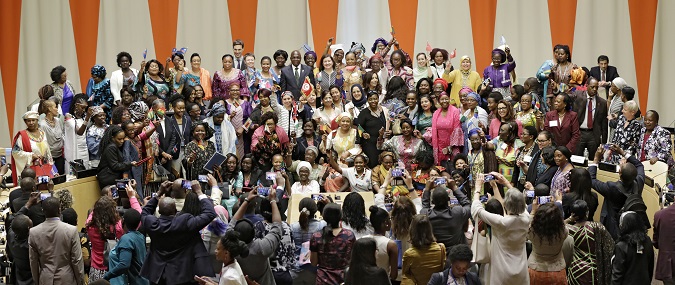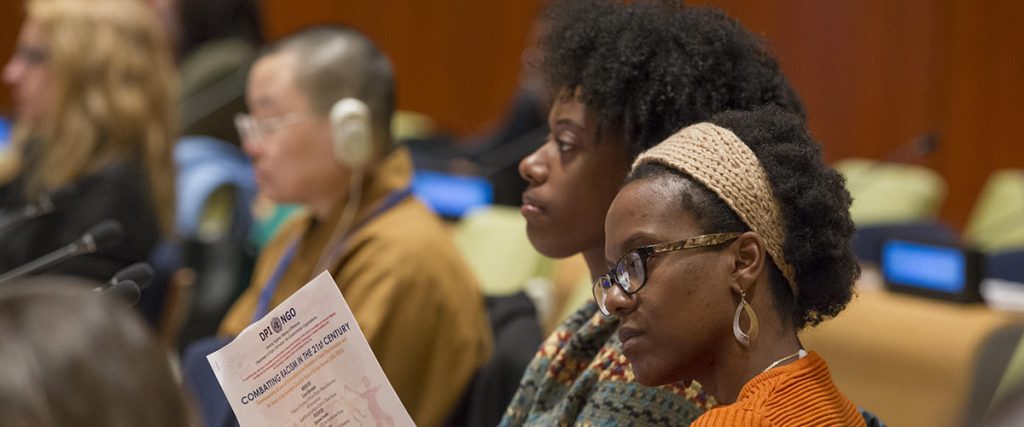The African Union has apologised over allegations of gender-related discrimination made by its women staff.
Last week, The East African published a story quoting memos issued by a group of women who condemned discrimination and utter disregard of female employees especially in the African Union Commission’s Peace and Security organ.
This week, AUC deputy chair Kwesi Quartey, whom the complainants had accused of paying lip service to the concerns, apologised for the developments, admitting that the claims had tainted the Commission’s image.
“On behalf of the Commission, I apologise if such an image has come across. I can assure you that this matter is being looked at critically and conscientiously and that a fair and transparent result will emerge,” Mr Quartey told Chinese broadcaster CGTN in Addis Ababa.

Mr Quartey said that there are different initiatives in place to ensure gender parity at the AU, but admitted that it is still work in progress and that “they are not entirely perfect.”
“Wherever imperfections show up, we shall seek to render the necessary apologies and rectify the situation,” he said.
“Powerful trio”
Reliable sources say that the revelations have prompted an internal discussion on how to deal with the crisis which has “embarrassed” the AUC chair Moussa Faki Mahamat and the entire leadership.
But the exposé has reportedly also caused fear among employees especially the complainants, who now fear retribution from a “powerful trio,” who they say will most likely seek to punish those who spoke out, rather than address the issues raised.
In a letter to The EastAfrican, the women have accused Mr Quartey of paying lip service to their concerns, saying there is no will internally to address the issues raised other than trying to save the image of the continental body.
“The deputy chairperson knows there is little he can do. That is why we are saying that only President Paul Kagame [the AU chairman] can intervene in a more neutral manner,” they said.
The EastAfrican has seen two memos, one written on January 25, titled “Me too up for her; She matters for all of us” addressed to Mr Mahamat and Mr Quartey, signed by at least 37 female employees in the AUC alleging gross discrimination and flouting of recruitment procedures.
Mr Faki has committed that the AUC will take action to end discrimination but his accusers have expressed doubt because they say he has known the issues for a while but taken no action.
But the commissioner for Peace and Security Smail Chergui, whom the women have accused of discrimination and high handedness, this week broke his silence on the matter, telling The EastAfrican that the accusations are a fabrication by one individual supported by a few others. He said investigations are ongoing to identify the person behind the scandal.
“It is all a fabrication from one person who is not even a staff of the commission, seconded by ACCORD, who was not retained by an independent panel for recruitment of a head of division. It has nothing to do with gender,” Mr Chergui said.
He said that he is personally involved in promoting gender parity in his department and promised to furnish this newspaper with the percentage of female staff in the PSC.
Asked to respond to the internal memos and signed petitions which explicitly name him, Mr Chergui said they were neither signed nor owned by the alleged complainants.
“An inquiry is on to determine who is behind this. The Commission will communicate in total transparency on this issue where we have zero tolerance,” Mr Chergui said.
Mr Chergui visited Kigali this week and met with President Kagame. The EastAfrican could not establish if the matter was discussed.
The State Minister for Foreign Affairs Olivier Nduhungirehe said Mr Chergui was in Kigali for the 2018 National Security Symposium organised by Rwanda Defence Force.
In new revelations, the group of women said that there is an effort to punish and silence those who spoke out by terminating or not renewing the contracts.
They also allege that Algeria, through its strong shuttle diplomacy has lobbied embassies in Addis Ababa not to support the petitions and claims of discrimination and segregation.

